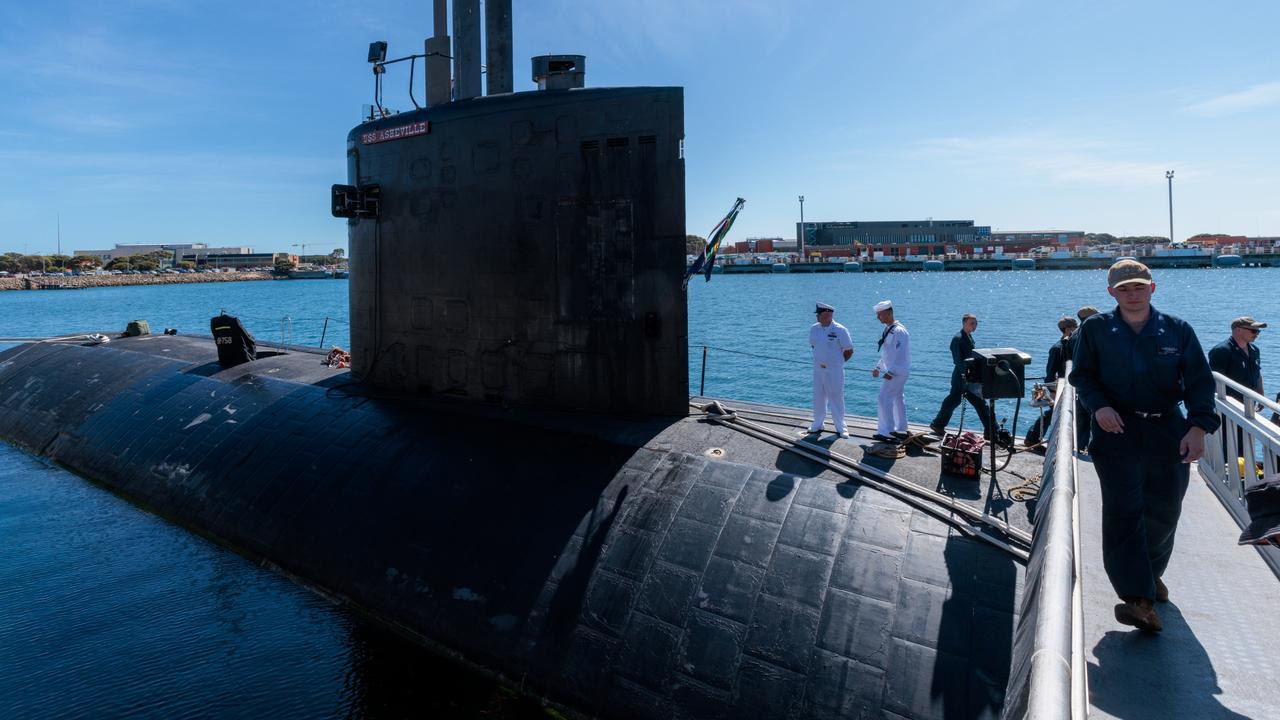Extensive ‘dragging track’ on Baltic seabed, Finnish investigators say
A probe into underwater “sabotage” by a Russian-linked vessel has found almost 100km of anchor drag on the Baltic seabed.

World
Don't miss out on the headlines from World. Followed categories will be added to My News.
A Russian vessel is the prime suspect after an anchor was dragged for about 100km, severing an undersea cable between Finland and Estonia.
An investigation into the disrupted Baltic Sea power cable confirmed an anchor drag trail is linked to Russian “shadow fleet” vessel Eagle S.
The ship has been seized by Finland, with Finnish police chief investigator Sami Paila warning the damage may have been deliberate.
It’s the latest of a series of incidents causing alarm in Europe, with fears Russia is attempting to sabotage key infrastructure, US broadcaster NPR reports.
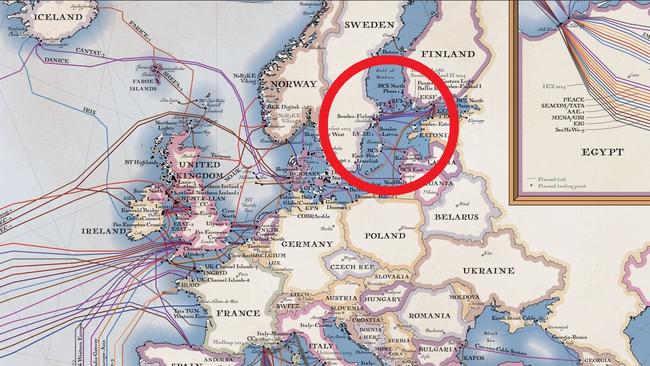
European leaders have refrained from directly calling out Russia. However Estonia’s interior minister Lauri Läänemets said the damage to undersea cables and pipelines was likely not a coincidence.
James Appathurai, who is Acting Assistant Secretary General for Innovation Hybrid and Cyber, said the attacks were the “most active threat” to Western infrastructure, French outlet Euronews reports.
“The Russians are carrying out a program they have had for decades. It’s called the Russian Undersea Research Program, which is a euphemism for a paramilitary structure, very well-funded, that is mapping out all of our cables and our energy pipelines,” he said.
Russia suspected of ‘sabotage’
On Christmas Day, the Estlink 2 submarine cable that carries electricity from Finland to Estonia was disconnected from the grid, just over a month after two telecommunications cables were severed in Swedish territorial waters in the Baltic.
Finnish authorities have been investigating the Eagle S oil tanker that sailed from a Russian port over suspected “sabotage”.
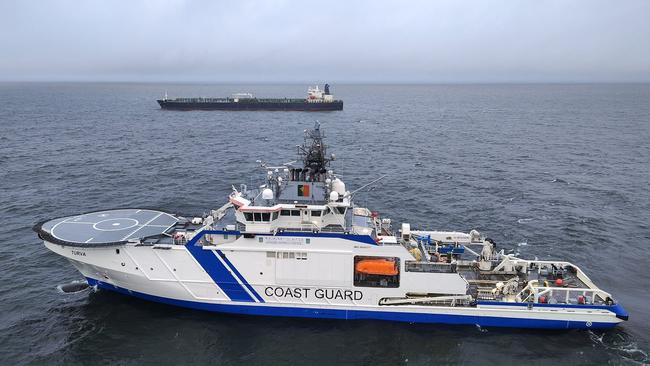
The investigation has revealed a “dragging track” on the seabed, police said on Sunday, adding the trail had been identified “from the beginning to the end”.
“The track is dozens of kilometres in length … if not almost 100 kilometres”, detective chief inspector Sami Paila from Finland’s National Bureau of Investigation (NBI) said on Sunday.
“For the time being, the possible location where the anchor came off has not been established”, he added in a press release.
Paila said to Finnish national TV broadcaster Yle: “Our current understanding is that the drag mark in question is that of the anchor of the (seized) Eagle S vessel. We have been able to clarify this matter through underwater research,” CNN reports.
Paila added that Finnish authorities have a “a preliminary understanding of what happened at sea, how the anchor mark was created there,” and emphasised that the “question of intent is a completely essential issue to be clarified in the preliminary investigation.”
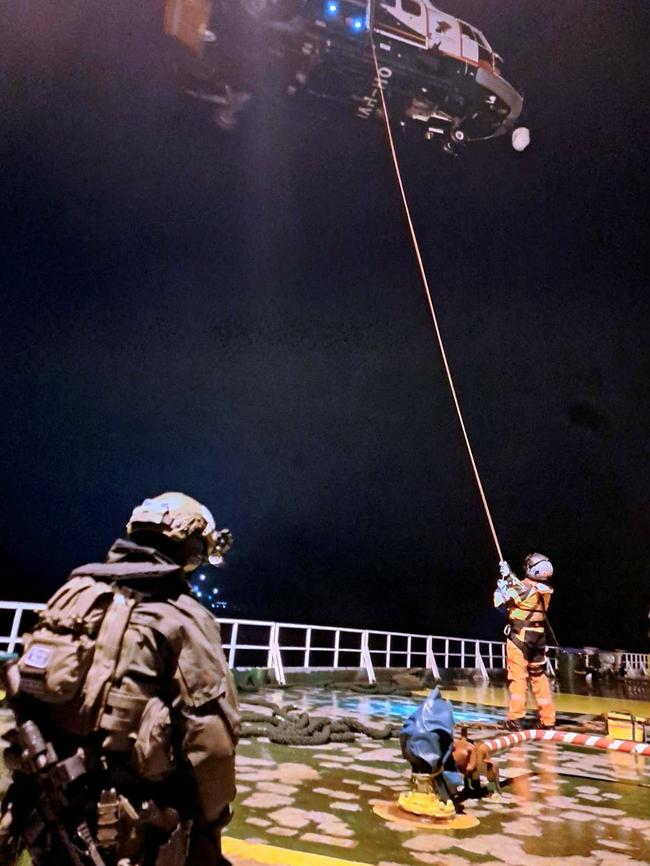
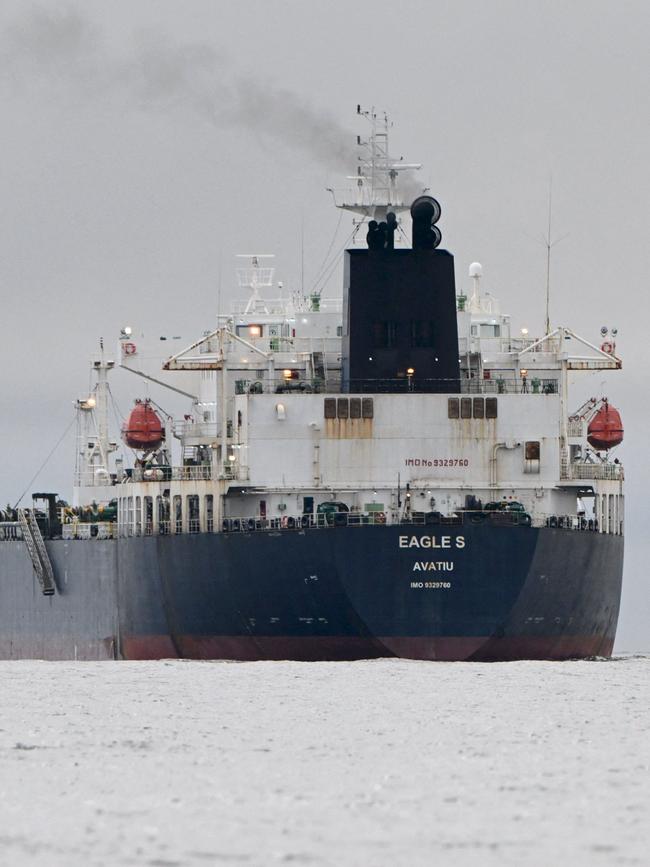
The Eagle S oil tanker is currently in Porvoo, Finland a town some 40 kilometres east of the nation’s capital.
Investigators suspect the tanker is part of a Russian “shadow fleet.”
The term refers to ships transporting Russian crude oil products that are embargoed due to Russia’s invasion of Ukraine.
The European Union has threatened further sanctions against Russia’s shadow fleet.
The bloc’s 27 member states agreed earlier this month to blacklist around 50 more oil tankers from Russia’s shadow fleet used to circumvent Western sanctions, taking the number targeted to around 80.
NATO’s secretary-general, Mark Rutte, said on Friday the US-led defence alliance would bolster its military presence in the Baltic Sea in response to the Baltic Sea incident.
Finland, which shares a 1,340-kilometre border with Russia, joined NATO in April 2023 amid heightened fears of Russian aggression.
The move abandoned the Nordic country’s traditional policy of neutrality and bolstered the North Atlantic’s Alliance’s presence around Russia.
- With additional reporting from AFP.
Originally published as Extensive ‘dragging track’ on Baltic seabed, Finnish investigators say



